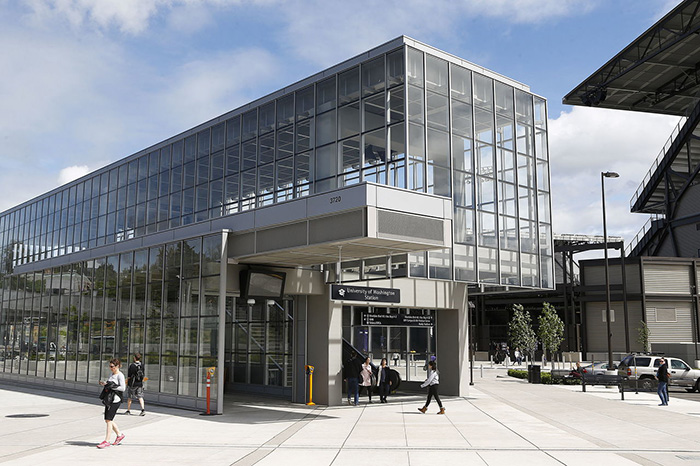United States - European Commission Urban Freight Twinning Initiative: Compendium of Project Summaries, Volume II
Overview of 2018-2019 International Urban Freight Roundtables
| Research | Metro Plans | Policy | United States |
Feasibility Study for a Common Carrier Locker System Pilot Test
The purpose of this project, part of the Urban Freight Lab’s (UFL) Final 50 Feet series, is to develop criteria used to evaluate the public and private benefits of locating common carrier delivery locker systems at Sound Transit passenger train stations or neighboring transit-oriented-development (TOD) areas and apply the criteria to evaluate potential sites’ feasibility for a pilot test. Common carrier locker systems, unlike company-branded lockers, may be used by multiple delivery firms to hold packages. There are several public benefits of a common-carrier system, including: (1) Prevents one firm from receiving preferential access to public space and facilities, etc.; (2) Adds an amenity that improves transit passengers’ experience at the mobility hub; and (3) Reduces the space requirement for locker systems at stations. The private sector benefits include: (1) Increasing density of deliveries, thereby increasing efficiency; and (2) Reducing the number of failed first delivery attempts (15% of all delivery attempts may fail in cities). Failed delivery attempts cause firms to take the package to an alternate site or back to their distribution centers; either action will add truck trips to congested roadways.

University of Washington Sound Transit Station, 2017.
Source: Urban Freight Lab University of Washington.
Project Types
Research, Metropolitan Plan.
Period of Performance
September 2017 - June 2018.
Project Site
Seattle, Washington, USA.
Contact
Barb Ivanov
Director, Urban Freight Lab
SCTL Center, University of Washington
Seattle, WA, USA
IvanovB@uw.edu
Topics Addressed
- Building/road design.
- Curbside delivery and parking.
- Economic competitiveness.
- Last mile delivery
- Livability/quality of life.
- Logistics/distribution.
Expected Outcomes
- Development of a list of evaluation factors, each prioritized as either "essential", "important," and "not material." These will include physical, legal/regulatory, operational, and market-driven factors for siting common carrier locker systems at passenger train stations.
- Application of the evaluation criteria at three Sound Transit train stations in Seattle, resulting in a report recommending site(s) for a pilot test in 2018.
Stakeholder Involvement
Funding and oversight was provided by Sound Transit which owns and operates the train stations, Metro King County Transit which owns the tunnel in which one of the train stations is located, and Seattle DOT. In addition to the public agencies, members of the UFL participated in a facilitated workshop in January 2018 to refine the evaluation factors. Members of the project team and agency representatives used the criteria on a walk-through of three commuter rail stations to evaluate the sites. They identified five viable locations. The UFL research team designed and is implementing the research plan.